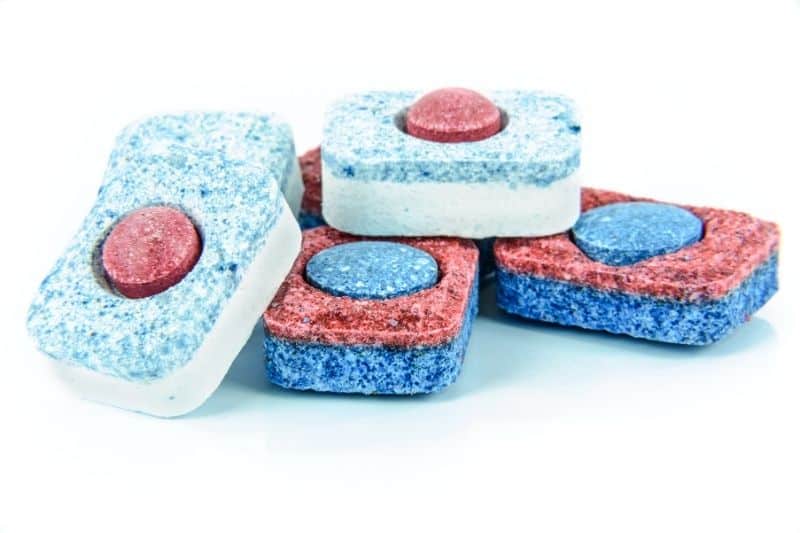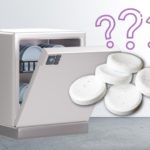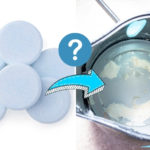The dishwasher is one of the most useful home appliances around. A dishwasher takes a lot of the strain out of cleaning up after meals, parties, or other events.
That level of usefulness, however, means that when something is wrong with the dishwasher, you feel it. If you start noticing soap residue or come across the protective layer from a dishwasher tablet that hasn’t fully dissolved, it’s time to investigate and work out what is going wrong.
How Does a Dishwasher Work?
Before starting to investigate possible causes, it is important that you know a little bit about how a dishwasher works.
Dishwashers use a mix of detergent and water to clean dishes by using high-pressure washer jets. These washer jets are what replace the need for scrubbing to clean dishes. Think pressure washer, as you would use on your car or patio.
The dishwasher arms rotate, spraying water from the washer jets as it spins to clean every surface of the dishes. The hot water used by the jets not only removes food particles from the surfaces, but this is also what dissolves the detergent.
The detergent door opens at a pre-determined moment in the cycle, dropping the tablets into the hot water in the bottom of the dishwasher, where it dissolves. This soapy water is then sucked into the drain at the bottom, before being pumped into the spinning arms and through the jets.
After the wash cycle, the soapy water is drained away, and the machine begins a rinse cycle. After the rinse, some machines will steam-dry the dishes.
With that in mind, we can move on to what can prevent dishwasher tablets from dissolving.
Reasons Dishwasher Tablets Aren’t Dissolving
1. Detergent door is blocked
A blocked detergent door is one of the most common causes of problems with dishwasher tablets not dissolving. Make sure that nothing is stopping the door from opening, for example, a pan handle sticking out from the top dishwasher shelf.
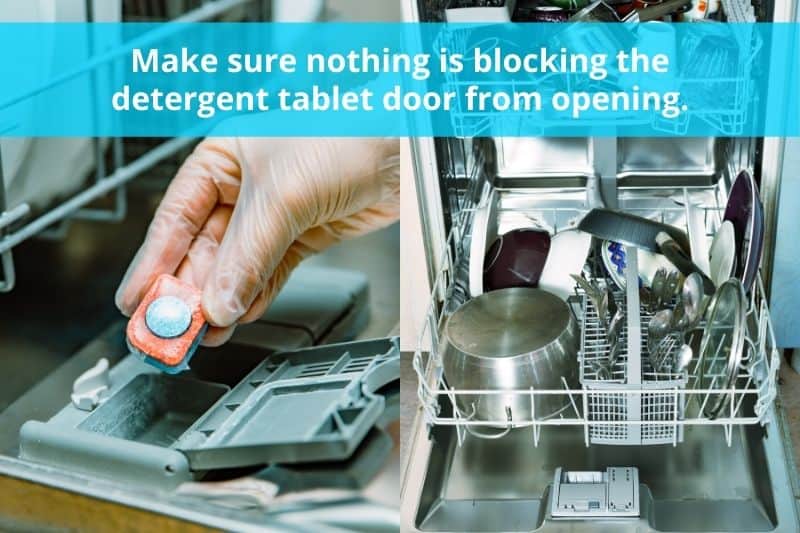
2. Detergent is getting stuck
It is also crucial that the detergent dispenser area is clean. Food, or even old detergent residue, can cause the dishwasher tablet to get stuck in the tray, or even prevent the door from opening.
The dispenser tray should also be dry before you put detergent inside. If the inside of the tray is damp, the dishwasher tablets can get stuck.
Try to avoid putting the detergent in the tray too early. If you load it a considerable amount of time before the wash cycle is started, it may clump or get stuck. Instead, load the detergent just before starting a cycle.
3. Broken or damaged dispenser
It is possible that the problem could be with the dispenser itself. Check the latch for damage, and make sure the door can open as expected during the cycle. If the door is sticking or not opening, the detergent may not release at the correct moment (if at all), preventing it from dissolving.
4. Spray arms not working
If the spray arms are not working properly, the dishwasher will not be able to achieve adequate water distribution. When you load the dishwasher, make sure that the spray arms can rotate freely and aren’t getting caught on large trays or pans.
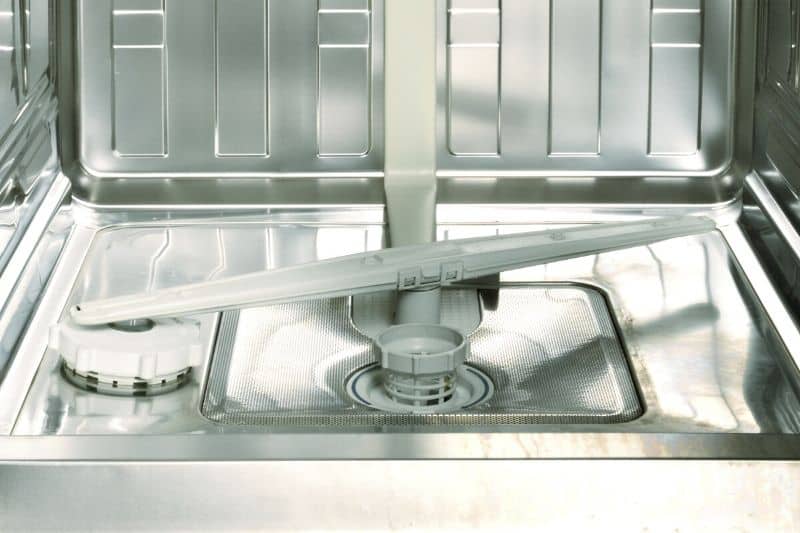
Check over the spray arms for any cracks or damage and see if the nozzles are blocked. If the nozzles are blocked with food deposits or other debris, detach the arms, and thoroughly clean the jet nozzles to clear the blockages.
5. Low water pressure
If the machine doesn’t appear to be filling with water properly or if the pressure is too low, the tablet won’t dissolve properly, and it is unlikely that your dishes will clean either. Make sure that the inlet pipe is not kinked, crushed, or twisted. If the dishwasher doesn’t appear to be filling with water, consider calling an engineer.
6. Low water temperature
Low water temperature is another potential cause. If the water temperature is too low, the detergent will not be able to dissolve fully. Try running a cycle at a higher temperature to see if detergent dissolves, and if it still doesn’t, we would recommend that you call out an engineer.
Another way to determine if the water temperature is low is to check whether the dishes are hot at the end of the cycle. If they are cold, the machine isn’t heating up properly and you should call an engineer out.
7. Type of detergent
If your dishwasher seems to be working as it should be, it might be worth giving the manufacturer a call to find out if the dishwasher in question is designed to work with a specific type of dishwasher detergent.
The variations in how different models and brands of dishwashers work can mean that some dishwashers are designed to work with specific types of detergent, and the problem you’re experiencing could be as simple as you’re not using this specific type.
We’ve been discussing primarily dishwasher tablets in this article, but it could be that your machine is designed to use detergent powder or gel instead. Make sure you’re using the correct product to match your machine’s workings.
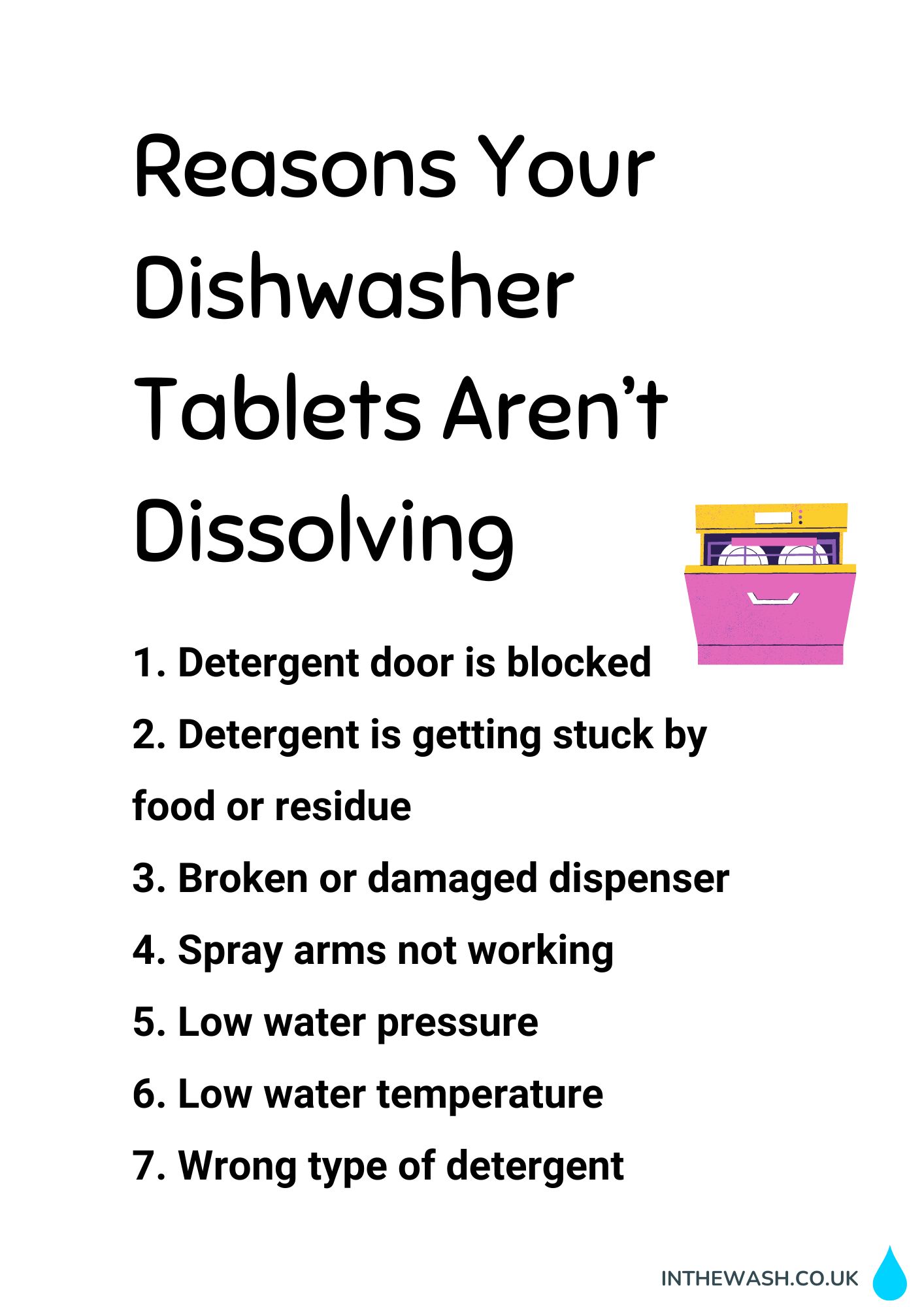

Lover of coffee, painting, and all things cute and fluffy. I’m always on the lookout for easier, more gentle ways to tackle awful household chores.
